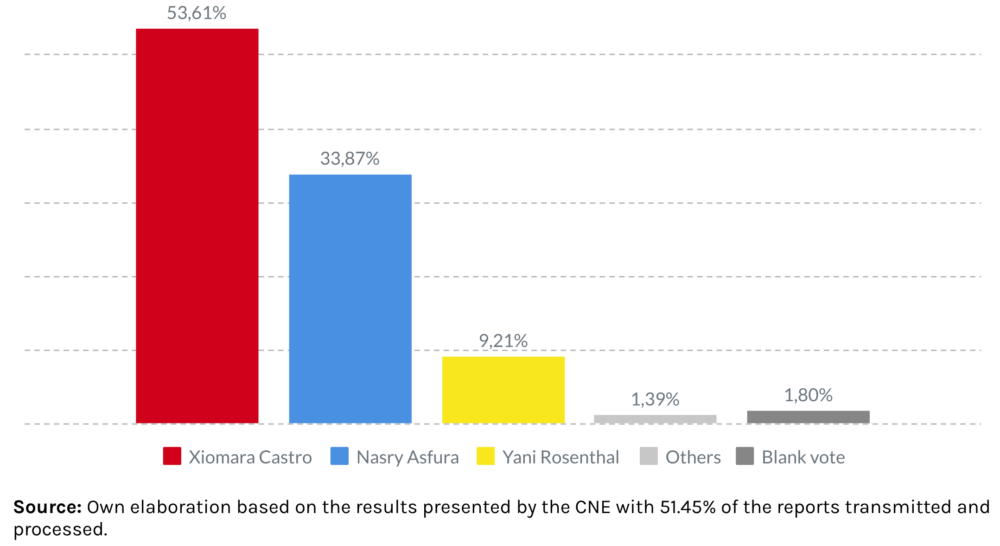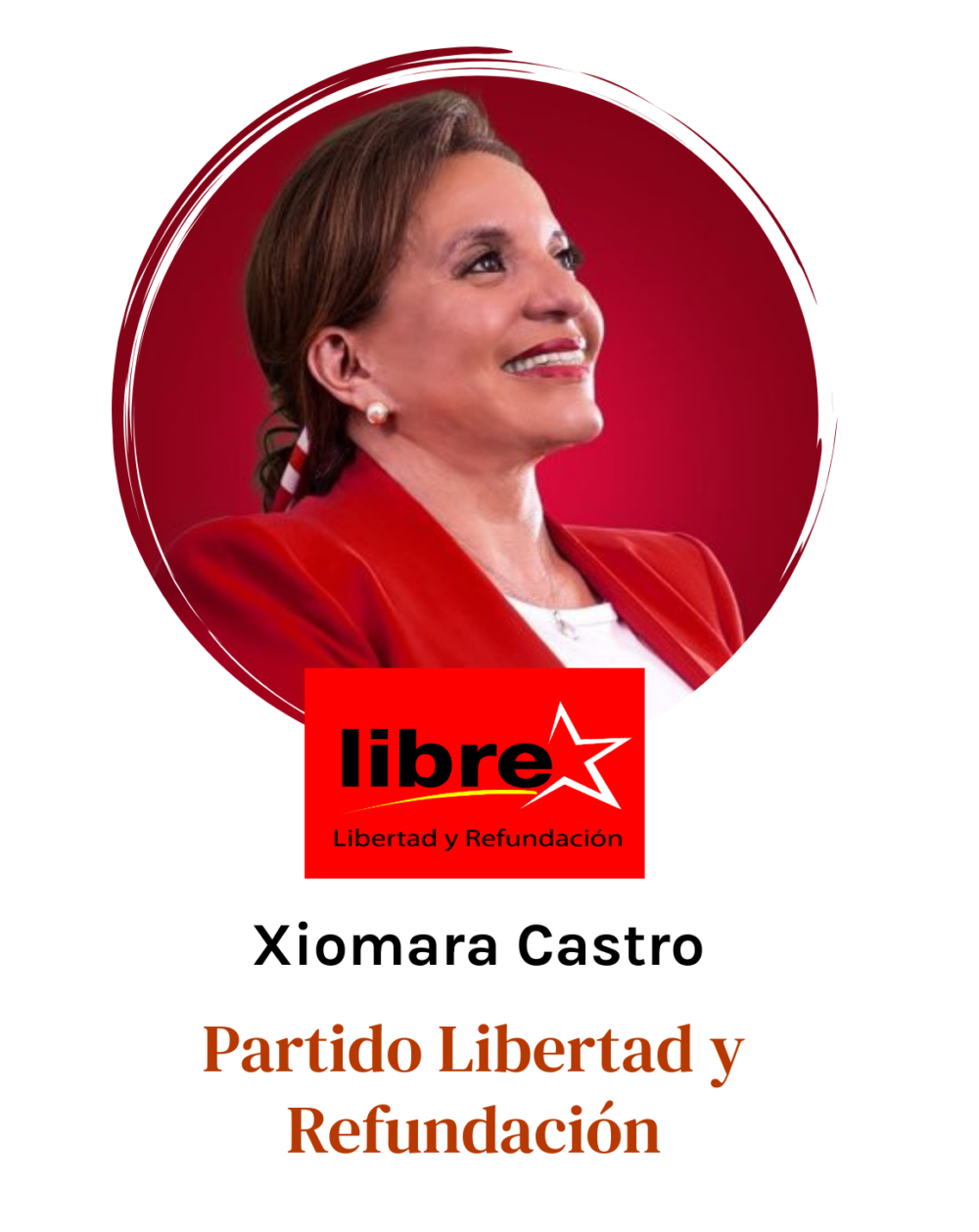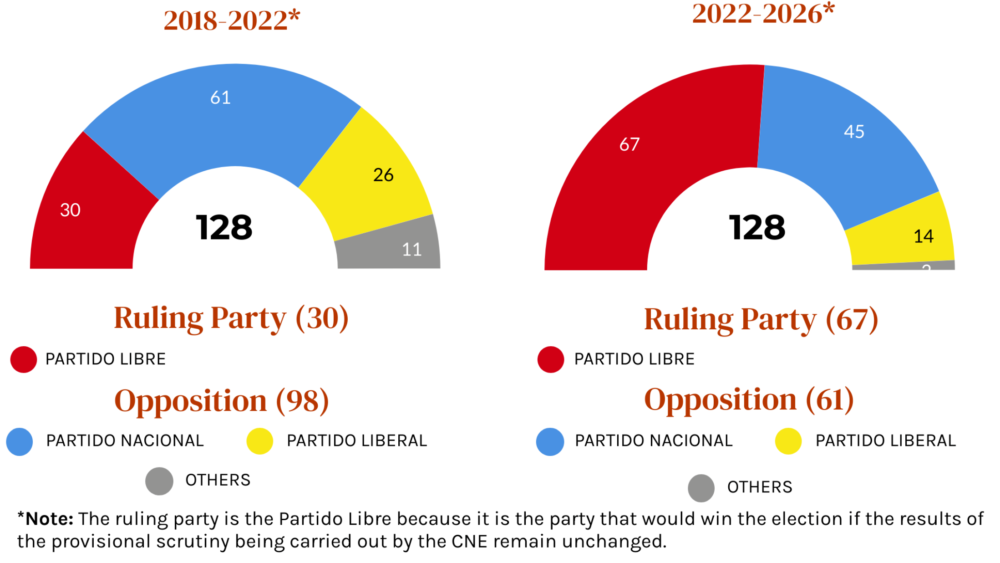With more than half of the votes counted, Xiomara Castro is on her way to becoming the new president

On Sunday, November 28, general elections were held in Honduras, where citizens chose the next president and 128 deputies of the National Congress for the period 2022-2026. As expected, the election was polarized between two candidates: Xiomara Castro for the Libertad y Refundación (Libre) party and Nasry Asfura for the ruling Partido Nacional. According to provisional results, Castro remains in the lead with 53.61% of the votes, versus Asfura’s 33.87%. According to the National Electoral Council (CNE, in Spanish), the elections reflected a “historic turnout”, at 68.09%, with both international observers and the Honduran electoral body described proceedings as ‘peaceful’.
Executive elections
So far, Xiomara Castro leads the race with 53.61%, twenty points ahead of Nasry Asfura, of the ruling Partido Nacional, who has 33.87% of the votes. With this scenario, Castro would win the Honduran Executive Branch, allowing the return of the left to power after 12 years and becoming the first woman president of the country. However, the Partido Nacional also assures that they have won the election. In order to avoid an escalation of violence similar to the one that occurred in the 2017 election, the CNE has asked for restraint and has assured that it will only officially proclaim a winner when the vote count has been completed.

Who is and what does the candidate leading the count propose?

She holds a degree in Business Administration from the Honduran Institute of Inter-American Culture. She is the wife of former President Manuel Zelaya, deposed by a coup d’état in 2009. Although she has not formally held any political office, she has run as a candidate in the 2013 and 2017 presidential elections.
Among her proposals are: to reduce interest costs on loans through the use of credit cards; to implement a digital economy agenda to boost creative industries; and to promote a tax reform that includes a tax on large fortunes.
After the CNE’s provisional results were announced, she assured that she will form a government of “reconciliation, peace and justice” and that she will work on “all the promises” made during the campaign.
Legislative elections
The entire National Congress, composed of 128 deputies, was renewed. So far the CNE has released preliminary results for the presidential elections but not for the Congress, and there is no disaggregated data by department, so any estimation could be subject to change. Assuming that the national results are perfectly reflected in each department, it can be estimated that Castro and his party would obtain their own majority with 67 seats. Thus, the new government could move forward with the legal reforms it deems pertinent to promote its government agenda without negotiating with the opposition. On the other hand, the Partido Nacional would go from 61 seats to 45, becoming the main opposition party in the Legislative.

Conclusions
The entire National Congress, composed of 128 deputies, was renewed. So far the CNE has released preliminary results for the presidential elections but not for the Congress, and there is no disaggregated data by department, so any estimation could be subject to change. Assuming that the national results are perfectly reflected in each department, it can be estimated that Castro and his party would obtain their own majority with 67 seats. Thus, the new government could move forward with the legal reforms it deems pertinent to promote its government agenda without negotiating with the opposition. On the other hand, the Partido Nacional would go from 61 seats to 45, becoming the main opposition party in the Legislative.
